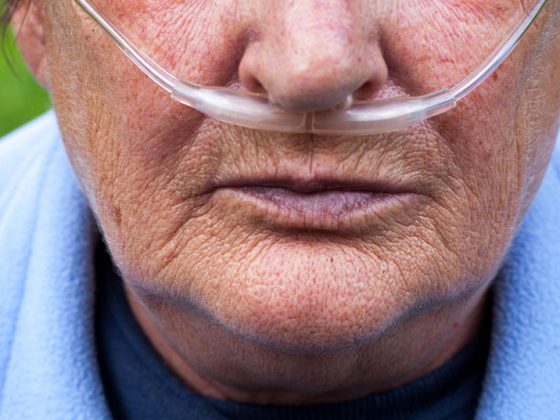Carcinoma of the urinary bladder is one of the common malignant diseases. While the prognosis of patients with superficial tumors is usually favorable, the situation is much worse for muscle-infiltrating and organ-transcending urothelial carcinoma. Recent study results now raise hopes for effective immunotherapeutic treatment.
Malignant neoplasms of the urinary bladder affect men twice as often as women – especially in older age. At baseline, approximately three-quarters of patients present with a superficial, non-muscle-invasive tumor. Here, the primary therapy is transurethral electroresection of the tumor, possibly followed by intravesical chemotherapy or immunotherapy. The average five-year survival rate is very good at 80-100%. The situation is different, however, for urothelial carcinomas in which the tumor has already grown into the muscles or has spread to other organs. Despite intensive treatment, less than 30% survive the next five years.
Therefore, a randomized phase III clinical trial has now enrolled 700 patients with locally advanced or metastatic urothelial carcinoma who could not be treated surgically. In those affected, the cancer had stopped after 4 to 6 cycles of platinum-based chemotherapy. The study included patients with PD-L1-positive tumors (51%) and PD-L1-negative tumors. Randomized in a 1:1 ratio, one group received avelumab as maintenance therapy with best supportive care (BSC) and the other half received BSC alone. Palliative care is designed to optimize the quality of life and function of a person with cancer by actively managing cancer-related symptoms and side effects without specific cancer treatment. The median observation period was slightly more than 19 months.
Supportive therapy alone is not enough
The study showed that the addition of avelumab resulted in a longer survival of 7 months in all patients – regardless of whether the tumor was PD-L1 positive or not. For all patients, median overall survival (OS) was 21.4 months in the avelumab group and 14.3 months in patients receiving supportive therapy alone. The median overall survival for sufferers with PD-L1-positive tumor who received only best supportive care was about 17 months. In patients with PD-L1-positive tumors who were additionally treated with immunotherapy, median overall survival had not been reached at the end of the observation period. This means that more than half of the patients were still alive at the time of follow-up.
With regard to serious adverse events, these occurred in approximately 47% of patients receiving avelumab compared with approximately 25% in the BSC group. The most common side effects were urinary tract infections, anemia, blood in the urine, fatigue, and back pain. Ultimately, the safety profile was consistent with previous monotherapy studies.
The study authors are therefore confident that maintenance therapy with immunotherapy in addition to supportive care can help people with advanced bladder cancer live longer.
Source: Powles T, et al: Maintenance avelumab + best supportive care (BSC) versus BSC alone after platinum-based first-line (1L) chemotherapy in advanced urothelial carcinoma (UC): JAVELIN Bladder 100 phase III interim analysis. J Clin Oncol 38: 2020 (suppl; abstr LBA1). DOI: 10.1200/JCO.2020.38.18_suppl.LBA1
ASCO20 Virtual
InFo ONCOLOGY & HEMATOLOGY 2020; 8(3): 26 (published 6/20/20, ahead of print).











